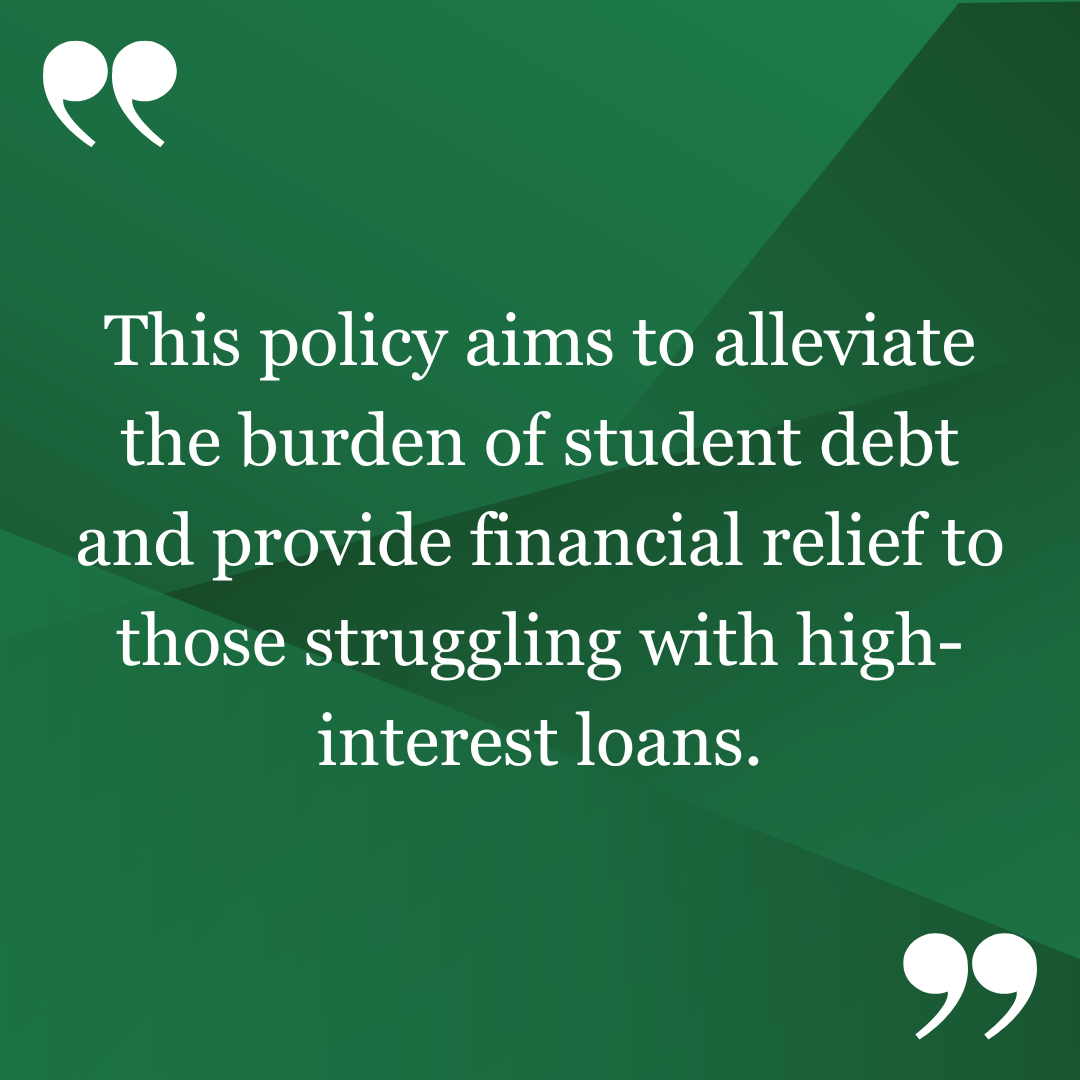STUDENT
DEBT

The idea of using untaxed retirement funds to pay off student debt involves allowing individuals to access their retirement savings, such as those in 401(k)s or IRAs, without incurring penalties or taxes, specifically for the purpose of debt repayment. This policy aims to alleviate the burden of student debt and provide financial relief to those struggling with high-interest loans. I also support low-interest rate borrowing on retirement accounts to alleviate the potential retirement savings reduction when the individual will need it most.
Potential Benefits
- Immediate Relief:
Using retirement funds could offer immediate relief to individuals facing substantial student debt, potentially improving their financial stability in the short term.
- Reduced Interest Costs: Paying off student loans early can save money on interest over time, which might outweigh the potential growth of the retirement savings that would have otherwise occurred.
- Financial Freedom:
Clearing student debt could enable individuals to redirect their finances towards saving for retirement, homeownership, or other long-term goals.
- Simplified Financial Management: Reducing debt can simplify financial management and reduce the stress associated with multiple payments and high-interest rates.
Potential Drawbacks
- Retirement Savings Impact: Accessing retirement funds early can significantly impact future financial security. These funds are intended to support individuals in retirement, and depleting them prematurely could jeopardize long-term financial stability.
- Tax Implications: While the policy might allow for penalty-free withdrawals, taxes on the retirement funds could still apply. This could reduce the overall effectiveness of using these funds for debt repayment.
- Opportunity Cost: The potential growth of retirement savings over time might be higher than the interest saved by paying off student loans early, depending on investment returns and loan interest rates.
- Equity Concerns: This policy might disproportionately benefit higher-income individuals who have more substantial retirement savings and student loans, potentially widening existing inequalities.
- Complexity and Misuse: Implementing and regulating this policy could be complex. There’s a risk that some individuals might misuse the funds for non-educational debt or other purposes, undermining the intent of the policy.
Alternative Approaches
- Income-Driven Repayment Plans: Expanding income-driven repayment options can provide relief based on income levels, making debt more manageable without impacting retirement savings.
- Forgiveness Programs: Expanding or improving student loan forgiveness programs could address the debt issue directly without affecting retirement funds.
- Tax Incentives for Savings: Providing tax incentives or credits for saving for retirement and education simultaneously could support both goals without the need to withdraw funds early.
- Financial Education: Enhancing financial literacy programs to help individuals manage both student debt and retirement savings more effectively.
While allowing untaxed retirement fund withdrawals for student debt repayment could offer immediate financial relief, it poses significant risks to long-term retirement security and could lead to broader equity and policy concerns. A balanced approach that includes other forms of debt relief and financial support may be more effective in addressing the student debt crisis while safeguarding retirement savings.
